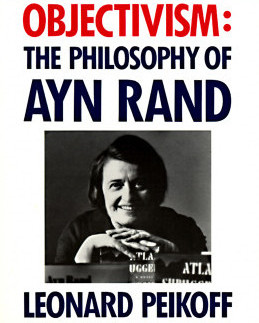An excerpt from chapter 9 on Happiness from Objectivism: The Philosophy of Ayn Rand by Leonard Peikoff.
Pleasure—using the term for a moment to designate any form of enjoyment—is an effect. Its cause is the gaining of a value, whether it be a meal when one is hungry, an invitation to a party, a diamond necklace, or a long-sought promotion at work. The root of values, in turn, is the requirements of survival. Self-preservation, in other words, entails goal-directed action, success at which leads (in conscious organisms) to pleasure. Metaphysically, therefore, pleasure is a concomitant of life. Pain is a concomitant of the opposite; its cause is an organism’s failure or injury in some respect.8
On the physical level, Ayn Rand observes, …
Read the rest in Objectivism: The Philosophy of Ayn Rand.
